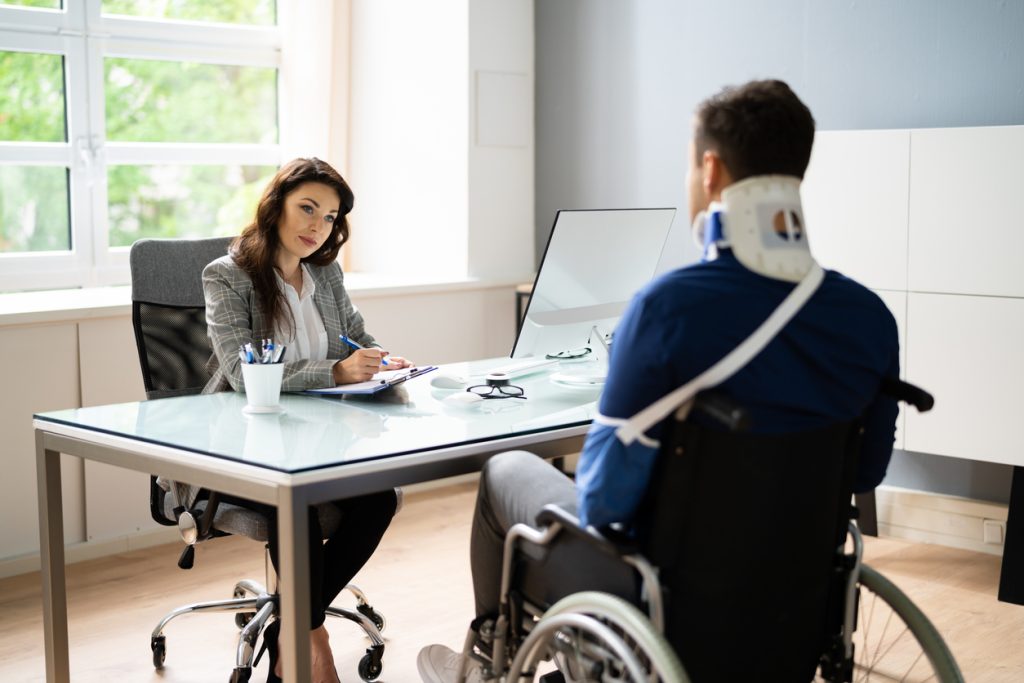Understand Your Rights. Solve Your Legal Problems


It’s difficult enough on its own to sustain a personal injury, as the aftermath can impact the victim emotionally, physically, financially, and mentally all at once. However, things can become much more stressful and overwhelming when the accident is another person’s fault.
Personal injury law aims to make accident victims whole by awarding them monetary damages. Of course, the process of recovering that compensation is often far from easy – sometimes requiring expert assistance and litigation in court.
Read on to learn about some of the most common types of personal injury claims and how hiring an attorney can make all the difference in the success of your case.
In reality, countless circumstances may give rise to a personal injury claim. When a party acts negligently (carelessly), intentionally, or recklessly and causes harm to another, there’s at least a chance the victim has a legal claim to pursue.
That said, there are certain categories of personal injury claims that occur more often than others. Some of the most common include the following.
Motor vehicle accidents are the most common type of personal injury claim. Included in this catch-all term are car, motorcycle, truck, pedestrian, bicycle, and other similar types of accidents.
Insurance companies almost always feature prominently in these cases. Most often, the victim’s primary option for legal recourse is to file an insurance claim against the at-fault driver’s policy.
From the victim’s perspective, what’s important to keep in mind is that insurance companies are for-profit businesses. They make money by accepting monthly payments (premiums), not by paying out large claim settlements. As a result, they’ll do whatever they can to minimize or eliminate their liability for the claims they review.
Slip and fall accidents are another type of common personal injury claim. These claims fall under the larger category of “premises liability.” This area of personal injury law holds property owners/managers legally responsible for keeping their premises reasonably safe.
The requirements that the law imposes depend, in large part, on the type of premises in question and the victim’s relationship to the property. For example, a retail shop would have stronger legal responsibilities toward a customer than would a private property owner toward a trespasser.
Oftentimes, slip-and-fall accident cases involve going up against a powerful business corporation. These corporations generally have entire departments dedicated to defending them against legal claims – including personal injury claims.
Perhaps surprisingly, medical malpractice is another one of the most common kinds of personal injury claims. When a doctor, nurse, or other healthcare provider fails to uphold their duty of care to a patient, they can be held liable for the resulting harm.
Medical malpractice cases have many unique attributes. Generally, the victim must present an affidavit from an expert asserting the validity of their claim. Otherwise, the court may reject the case outright.
Healthcare providers are also held to a higher standard of care during their work. The question often posed is, “Would a reasonably careful healthcare provider have acted similarly, given the circumstances?” If the answer is yes, the victim will be on their way to a successful outcome.
Product liability claims are prevalent as well in the world of personal injury law. When a person is injured by a defective product, they may be able to file a claim against the product’s manufacturer, retailer, and/or distributor.
There are three broad categories of product liability claims. These are based on whether the defect is based on the inherent design of the product (a design defect), whether a particular instantiation of a product is defective (a manufacturing defect), or whether the product’s marketing did not provide adequate warning of its risks (marketing or failure to warn defect).
Unlike most other types of personal injury claims, product liability cases often do not require the victim to establish fault from the responsible party. Instead, these cases adhere to the legal concept called “strict liability.” Whether or not the at-fault manufacturer, distributor, and/or retailer acted with due care, they can still be held liable for damages.
Regardless of the type of personal injury claim you intend to bring, it may be in your best interest to hire a personal injury lawyer to help. Here are just a few of the many reasons why:
● The at-fault party in your case will often either have legal representation themselves and/or extensive resources available to defend themselves against your claim. Hiring a lawyer will allow you to level the playing field and ensure that you aren’t taken advantage of.
● Personal injury attorneys can enlist the help of experts as needed throughout your case. In some types of cases, such as medical malpractice, this is a requirement to bring the personal injury lawsuit in the first place. But even if it’s not an outright requirement, it can be crucial to recovering full compensation for your injuries.
● In almost every case, the at-fault party will try to pin the blame on you (the victim). If they succeed in that effort, you could lose your right to compensation entirely or receive significantly reduced compensation. If you hire a lawyer, they can fight back against these accusations of shared fault effectively.
● If you hire legal counsel, they can handle the entirety of your claim while you focus on your medical recovery. This can make the aftermath of an accident much easier to contend with for you and your loved ones.
Most personal injury attorneys offer free initial consultations. At the least, it is likely worth the time to reach out and determine whether it makes sense to hire a lawyer in your case.





